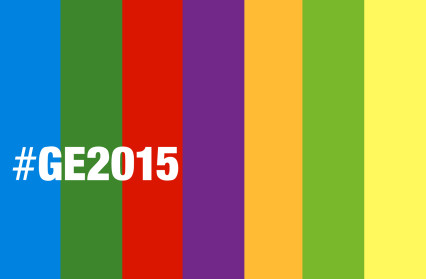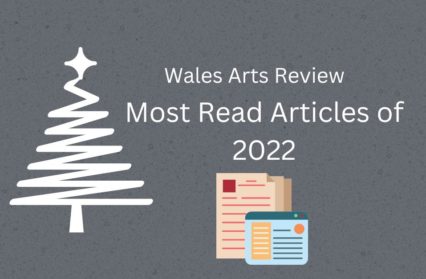Ben Glover looks at the lack of political engagement by Britain’s poor.
There is a pernicious stereotype of a predator. A thief that is simultaneously both lazy and cunning. Whilst we slave away in soul crushing employment, they live a life of luxury and bourgeois abandon with all the advantages that our modern society allows. Vilified in the media for excessive consumption and denounced by politicians as a cancer at the very heart of our society that reflects our moral and intellectual decay. This is not a stereotype of a City of London financial worker who, during the early noughties, avariciously gambled with reckless disregard for the consequences of their negligent destabilising behaviour. Nor is it the media portrayal of a politician during the expenses scandal. No, it is the stereotype of a single mother, a disabled person or anyone that has the misfortune to find themselves in a position where they need the state’s financial support.
The concept of poverty in a developed country is obviously relative. It is rare in a UK context to discuss poverty in terms of the starvation and destitution of the Victorian work houses or the utter and absolute poverty that Orwell experienced in The Road to Wigan Pier. Therefore it is useful to define what relative poverty means in our society and according to the Joint Report on Social Inclusion 2004 by the European Commission people are said to be living in poverty…
…if their income and resources are so inadequate as to preclude them from having a standard of living considered acceptable in the society in which they live. Because of their poverty they may experience multiple disadvantage through unemployment, low income, poor housing, inadequate health care and barriers to lifelong learning, culture, sport and recreation. They are often excluded and marginalised from participating in activities (economic, social and cultural) that are the norm for other people and their access to fundamental rights may be restricted.
There will be people reading this and scoffing at the idea that poverty in the UK is at epidemic levels. If you, or someone you know, has never feared where the next meal is coming from or worried about clothing the family, then I am happy for you. I really am. But the poverty epidemic is real – for the thirteen million people in the UK that live below the poverty line it is a constant struggle to just to tread water. Just to be clear: that is one fifth of the UK’s population, the world’s sixth largest economy, which is facing a future of uncertainty and probable hardship.
The manifestation of poverty in the UK maybe not as visceral as the images created by Steinbeck in describing the hardships of the Joad family during the dustbowl in The Grapes of Wrath, but the indicators are there. Since the last general election in 2010, and more importantly the implementation of the austerity experiment by the subsequent government, the poorest in the UK have suffered the brunt of the hardship. Possibly the most damning indictment of the Government’s austerity policies is highlighted by the explosion in the use of foodbanks, which has witnessed an almost 1500% growth in the first four years of this decade. Combined with the destructive effects of a falling living standard and a drop in real wages for the majority of people, the poor have suffered the most.
The myth surrounding this debate is that the poor are lazy or lack ambition, or as Adam Smith once wrote ‘the real tragedy of the poor is the poverty of their aspirations’. This just is not true. Perpetuated and reinforced by the continual stream of Victorian freakshow-esque ‘poverty porn’ TV programmes, such as Benefits Street, Benefits Britain: Life On The Dole and such like, these have all fed into the perception that most people that are poor through lifestyle choice and dependency. However, a significant proportion of the thirteen million people that are considered in this lowest bracket are the working poor, children and the elderly who, through circumstance, scarcity of opportunity and structural disadvantages, have found themselves trapped in a situation to which there is no easy escape.
It was during the Second World War that the UK Government took the tentative steps towards building a more equitable society, by commissioning the economist William Beveridge to outline a structure that would support the worst off in society and create the beginnings of a welfare state. But this utopian view of the future, in which the five Giant Evils (squalor, ignorance, want, idleness, and disease) were banished, only lasted for a few short decades. The 1970s witnessed a subtle change in attitude towards the role of government and the responsibilities of the individual; Thatcherism heralded a new dawn of smaller governance, privatisation and lighter regulation in the free market. This belief system has continued pretty much unhindered to the present day – trickle-down economics has shaped and defined the UK’s economic strategy since its introduction in Margaret Thatcher’s first government. Though there is little evidence that this strategy has helped anyone but the wealthy, as Ha-Joon Chang, a Reader in the Political Economy of Development at the Cambridge University, notes:
Even when upward income redistribution creates more wealth than otherwise possible (which has not happened, I repeat), there is no guarantee that the poor will benefit from those extra incomes. Increasing prosperity at the top might eventually trickle down and benefit the poor, but this is not a foregone conclusion.
However, it is through government policies that the poorest sections of society have been constrained. For instance: the increases in the rate of VAT, the implementation of the under-occupancy penalty (the bedroom tax, to you and I), zero hours contracts and cutting of legal aid, have all increased the financial burden on the poorest in society. Furthermore, it is not just the monetary aspect of government policy that afflicts the poverty-stricken: people in the poorest areas of the country are more likely to attend a failing school, be disadvantaged by restricted employment opportunities, suffer from poor health, have restricted access to government services, have a lower life expectancy and be the victims of more violent crime. Also, the continued application of the last government’s austerity policies has disproportionally impacted upon the poorest in the UK, leaving the possible conclusion that this is just simply an ideological attack against a section of society. Iain Duncan Smith’s constant referral to the straw man of the benefits cheat is either a wilful misrepresentation of the thirteen million poor to support the austerity policies, or a sign of breathtaking ignorance that would surely bar him from holding any future position in public office.
It is not just the policies of the government that compound the status quo for the thirteen million; there are many possible financial penalties incurred just by being poor. There is a seemingly endless list of companies that are willing to profiteer from anyone that fails to meet their requirements for being a ‘good customer’. Energy companies that force the more expensive prepayment meter on customers that have had financial difficulties in the past. Insurance companies that only offer cover at vastly inflated prices if you live in a poor area. Childcare costs that make it prohibitively expensive for both parents to work. Payday loans companies that shamefully target and exploit people who can’t get credit elsewhere – some offering loans with a 7000% APR! Landlords increasing rents above the rate of inflation, (though this is an action that affects every social stratum, it is most keenly felt at the lower end of the spectrum). The result of these companies’ business plan is obvious; if you are poor, there is a high probability that you will stay poor.
The sad truth is that the poorest in our society are the most disenfranchised with the whole political system and as such demand less attention from the majority of political parties. This disaffection with the political system inevitably manifests itself as a malaise towards electoral engagement; at the 2010 general election, the section of society with the lowest turnout percentage was also the poorest. Consequently, this lack of political participation results in the poorest fifth of society becoming marginalised in a way that other groups, such as the politically active elderly, certainly do not suffer from. Even with the intervention of powerful advocates such as the Church there appears to be little change in attitudes towards the people in poverty. In a recent open pastoral letter, The House of Bishops of the Church of England noted that;
there is a deep contradiction in the attitudes of a society which celebrates equality in principle yet treats some people, especially the poor and vulnerable, as unwanted, unvalued and unnoticed. It is particularly counter-productive to denigrate those who are in need, because this undermines the wider social instinct to support one another in the community.
This is not to claim that the poorest fifth in the UK are without representation and lack total political engagement. They certainly are not. But they are equally not the stereotypical benefits scroungers or cheats that some media outlets have portrayed them as either. Undoubtedly, there are people that may number in the tens of thousands that play the system, commit benefit fraud and have no intention to contribute to society in a meaningful way; however, these are in the minority. Poverty has a cost for us all: in a monetary sense – the cost of child poverty to the exchequer alone is £29 billion a year – but also from a moral perspective. Poverty is a blight on our country, and as such, we all suffer from the effects of it.












